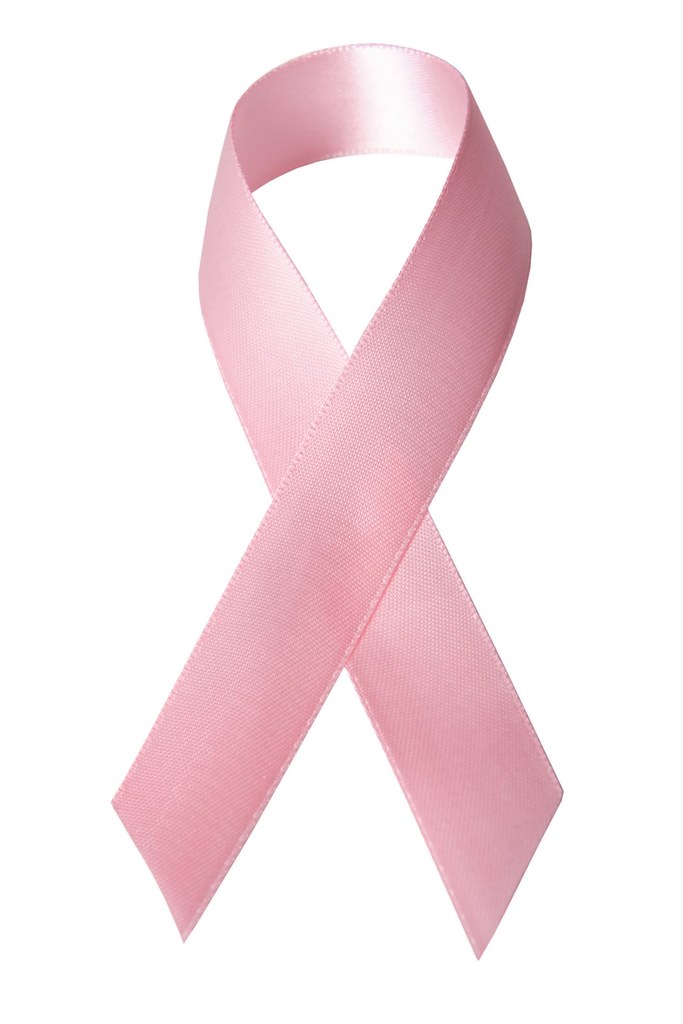Cancer Glossary
 |
Cancer Glossary
|
What is ?
Acupuncture: An ancient
Asian system of
therapy that uses long, thin needles to
cure disease or relieve symptoms.
Advance directive: A
document in the patient’s
record describing his or her wishes
regarding various life-sustaining
interventions
in the event the patient cannot
communicate directly.
Alternative medicine:
Healing treatment(s)
used instead of mainstream, hospital-based
healthcare practice.
Ambulette: A transport
service for patients,
usually a van that can accommodate
patients in wheelchairs.
Antiangiogenesis therapy:
Experimental cancer
treatment that focuses on
blocking growth of new blood vessels
to tumors.
Anticipatory grief:
Beginning to experience
the loss of someone before the
person actually dies.
Attending physician:
The physician in
charge of a hospital patient’s care.
Caregiver: One who helps
another person
with a serious illness do what he or
she ordinarily would be able to do to
meet
both current and future needs.
Case manager: Also called a
discharge planner.
Nurse or social worker who coordinates
the patient’s discharge from
a
hospital.
Chemotherapy: Also called “chemo.” Treatment
of disease using chemical substances
or drugs.
Clinical nurse specialist (CNS):
Nurse with
a master’s degree who can provide patient
care and education in a medical
specialty.
Clinical trials:
Research projects conducted by
doctors to test the safety and
efficacy of new drugs, therapies, or
prevention strategies on patients. Also
known as research protocols or clinical
studies, clinical trials are scientific experiments
overseen by the U.S.
Food and Drug Administration, which, based on
the results of the trials,
decides whether or not to approve
the new drugs or therapies for
general use.
Colostomy: Surgery to
establish an artificial
connection between the lumen
of the colon and the skin.
Complementary medicine or therapies: Healing
treatment(s) used together
with mainstream, hospitalbased medical
practice.
Counseling: Mental health
therapy with
a professionally trained therapist (see Social workers).
Defense mechanism: A
psychological method
of protecting oneself from
anxiety or high emotional distress.
Denial
is an example.
Denial: A defense mechanism people use
to reduce their distress. It can include
minimizing the significance of
a stressful event, or in the extreme, denying
its existence altogether.
Dietitian: A
professional who plans tailored
diets to meet the nutritional requirements
of people with special healthcare
needs.
DNA (deoxyribonucleic acid):
The molecular
building blocks of chromosomes. They
contain and control genetic
information in cells, including how
they divide, grow, and function.
Do not resuscitate order (DNR): Can
be a component of an advance directive
and a living will; specifies the medical
steps to be taken in the event the
patient is found to be minimally responsive
with minimal life signs.
Durable medical equipment (DME): Equipment
such as walkers, wheelchairs, bedside
commodes, or hospital beds
that can be ordered from equipment suppliers
for home use.
Educational groups: A
gathering of people
where information is presented on
a range of topics (e.g., coping techniques, relaxation
methods, management of
medical issues).
Experimental protocol:
Research of a
new drug or therapy using very specific materials
and steps.
Fellow: Physician-in-training working in
a teaching hospital.
Genetic counselor:
An expert in genetics,
a branch of science focused on
the transmission and consequences of
biologic inheritance.
Health maintenance organization (HMO): An organization providing health
care to enrolled members through
a network of member doctors and
other healthcare providers. Designed
to reduce costs, HMOs also typically
restrict access to providers or
specialists outside their approved networks.
Healthcare proxy: A
document (also called
medical durable power of attorney or
healthcare agent) designating a family
member, guardian, or friend as the
decision maker about medical treatment
for a patient (see Surrogate).
Home care: Medical,
nursing, social, or
rehabilitative services provided in the
patient’s home.
Home health aide: A
qualified person able
to assist a patient with bathing, dressing,
getting around in his or her own
home, and doing other homemaking tasks
(also, Personal care attendant).
Hospice care: A facility or
home care program
designed to help meet the physical
and emotional needs of the terminally
ill.
Hypnosis: An
artificially induced trance-like
state of consciousness in which
the subject is susceptible to suggestion.
Used in symptom relief and
to reinforce behavioral change.
Incapacitated (mentally): A
term used when
patient is deemed by the medical team
as being unable to give informed consent
for a medical procedure (i.e., comatose,
mentally disoriented; see Healthcare
proxy).
Informed consent:
After a patient is educated
about his or her diagnosis and
all reasonable procedures and treatments ptions for the disease, he or
she must indicate an understanding of
and agreement to a course of action by
signing forms.
Intern: Physician-in-training working in
a teaching hospital.
Last will and testament: A
legal document specifying
a person’s wishes with
regard to inheritance after the person
dies.
Licensed practical nurse (LPN): Has
completed a two-year degree in nursing;
often involved with handson patient
care.
Living trust: A legal
document created for
a person while he or she is still
alive in order to protect financial assets.
A financial planner or lawyer can
provide details.
Living will: Legal
document that specifies
a patient’s wishes in the event
he or she becomes mentally incapacitated.
Malignancy: Tumors that
are characterized by
the ability to invade surrounding tissue
and spread to other parts
of the body.
Managed care plan: Insurance
or health
care plans that rely on primary care
physicians, and other methods, to
manage or coordinate the medical care
people receive.
Mastectomy: Surgical
removal of the breast.
Medicaid: A federal-
and state-funded health
insurance program for those on a
limited income.
Medicare: A federally
run health insurance
program for those aged 65 years
or more, or those on Social Security
Disability, who are legally blind,
or on renal dialysis.
Metastasis: The spread of
cancer from
the primary (original) tumor to another
part of the body.
Nurse practitioner (NP):
Advanced practice
clinician with a master’s degree
who can prescribe medications and
write medical orders.
Nursing home: A facility
that provides long-term
custodial care for patients who
can no longer live at home.
Nutritionist: An expert in
food and drink
intake (diet) for therapeutic purposes.
Oncologist: Physician
expert in the treatment
of cancer; includes overseeing administration
of chemotherapy and other
regimens.
Ostomy: Surgery to create an opening from
the skin to the urinary or gastrointestinal
canal, or the trachea.
Palliation: Reduction of
severity (to mitigate).
Palliative care focuses on treating
the symptoms of disease rather
than curing it.
Paratransit program: A
local public transport
system for those with a physical impairment
or medical condition.
Patient confidentiality:
Legal limits as
to what the medical team can tell people
other than the patient and his or
her spouse or designated surrogate/ healthcare
proxy.
Personal Emergency Response System (PERS): A device that a patient can
wear that can alert emergency help.
Phobia: Overwhelming fear of an object,
situation, or procedure.
Physiatrist: A doctor who
specializes in
rehabilitation medicine.
Physician assistant (PA):
Medical professional
who can diagnose, treat, and
write prescriptions under a physician’s
guidance.
Phytochemicals:
Chemicals found in plants.
Positive coping:
Techniques of thinking
and behaving that help a patient
respond to an event or stress more
effectively.
Power of attorney: A
surrogate or proxy
decision maker for the patient who
legally makes all health-related and
financial decisions for the patient;
entails a legal document.
Primary caregiver:
One who provides or
organizes others to provide the
essential logistical and emotional support
for a person with cancer.
Prognosis: Prediction of
the course of
a disease.
Progressive relaxation: A
relaxation technique
using deep breathing and muscle
control exercises; can also incorporate
peaceful music and guided
imagery.
Prostatectomy: Surgical
removal of part
or all of the prostate, which can alter
men’s physical/sexual responses.
Protocol: Description
of a clinical trial;
also used more generally to refer to
a plan of medical treatment.
Public assistance: A
federally run program
to provide cash benefits (e.g., food
stamps, welfare) for persons with a
low income to purchase food and clothing
and to pay for housing.
Radiation oncologist:
Physician expert in
radiation therapy.
Radiation therapy:
Used in both diagnosis
and treatment, the application of
light, short radio waves, ultraviolet rays,
or X-rays upon a specific area
of the body for a period of time.
Registered nurse (RN):
Provides patient
care; usually has completed a four-year
college degree and hospital training.
Resident: Physician who
has completed an
internship and is receiving training
in a specialized area.
Sexual paraphernalia: An
apparatus or object used
in sexual activity.
Skilled nursing facility (SNF):
A healthcare
facility providing shortterm nursing
care with the aim of having
the patient return home or to a
family member’s home.
Skilled nursing need: A
need for services
or care that can be performed only
by a licensed nurse, such as treating
a wound, teaching the administration of
new medications, or assessing clinical
status at home. Often a requirement
for home care by insurers.
Social Security: A
federally run program that
provides monthly payments to
persons over age 65 years and family
survivors;
the amount is calculated from
the person’s work history.
Social Security Disability (SSD): A federally
run program that provides a monthly
income to disabled workers and
their families.
Social workers:
Certified or licensed social
workers (CSW, LCSW, LSW) usually
have a master’s degree (MSW, MSSW)
or doctorate (DSW, PhD), and
counsel the patient and family coping
with the stress of diagnosis and
treatment. These professionals also
can identify community mental health
resources and coordinate patient
discharge.
Standby guardian: A
legally designated person
who will have custody of
a patient’s children in the event of their parent’s death or mental incapacitation.
Staging: Systems of classifying a patient’s
cancer by tumor size and how
far it has spread in the body.
Suicidal ideation:
Thoughts or plans to
commit suicide.
Supplemental Security Income (SSI): A federally run program that provides
income to eligible people over
age 65 years; legally blind or disabled;
who have a low income, few
assets, or a limited formal work history.
Support group: A gathering
that is focused
on sharing experiences, providing emotional
support, and relieving the
sense of isolation. May be led by
social workers or trained cancer survivor
volunteers.
Supportive or comfort care:
Focuses on
treating the symptoms of disease in
the later stages of the terminal disease process.
Suppression: Trying not to
think about
something.
Surgery: Removal of a tumor, organ(s),
or other objects from the body
and/or repair of body parts using
specific resection techniques.
Surrogate decision maker: A
person designated
to make health-related decisions
for that patient. The medical team
addresses all healthcare issues
for the patient directly to the surrogate.
Therapy groups:
Group counseling to
treat a specific therapeutic issue (e.g.,
depression, anxiety) led by a mental
health professional.
Time-out: A coping
strategy of removing
oneself from an emotionproducing person
or situation for a short period of
time.
Touch therapy: Massage or
acupressure.
Veterans’ benefits:
Financial and/or medical
care and discounted prescription drugs
that may be available for
U.S. veterans.
Yoga: An ancient Hindu system of philosophy
that employs physical exercise
and diet restrictions to control
the
functioning of the mind and body.



